Home » About OTIF » Mission
- About OTIF
- Activities
- Legal Texts
- Events
- Media
- Luxembourg Protocol
- Member Access
Mission
The Organisation’s mission is to promote, improve and facilitate international traffic by rail (Article 2 COTIF 1999). It therefore offers its 51 Member States a framework for cooperation in the railway sector in order to:
- extend and develop the application of COTIF,
- agree on uniform legal regimes,
- envisage and enshrine systems of technical compatibility and harmonisation,
- contribute to the elimination of barriers to border crossing.
Areas of activity:
OTIF has three major areas of activity: technical interoperability, dangerous goods and railway contract law.
OTIF develops uniform legal regimes for:
- contracts of carriage of passengers and goods,
- ancillaries to the contract of carriage, such as the contract of use of wagons or infrastructure,
- rules for the transport of dangerous goods,
- technical provisions and the procedure for the technical approval of rolling stock.
OTIF provides its Member States with the legal and technical means to facilitate international traffic by rail, to develop this traffic on their territory and to connect to the railway networks of other Member States. It therefore supplies the means to promote real legal and technical interoperability.
An interface and bridging role:
Some of OTIF’s Member States are also members of the Organization for Co-operation between Railways (OSJD) and/or the European Union (EU). OTIF is unique in letting each of its Member States choose how to deal with issues relating to the organisation of and access to the railway markets. By means of its flexible regulations, OTIF thus makes it possible to organise international transport between different railway systems on the three continents. This is particularly the case with the harmonisation work being carried out by OTIF and OSJD on the basis of the common position signed in 2003.
Since the EU acceded to COTIF in 2011, OTIF has strengthened its role as a bridge between the EU and non-EU Member States. OTIF ensures the consistency of the regulations between its Member States, whether or not they are members of the EU.
A forum for global railway law:
Today, the development of rail transport between Europe and Asia is again becoming a priority. Now is the time to set up new land routes, such as the Silk Road project. As a result of its flexibility and modern features, COTIF will become the shared tool for this railway globalisation. This is achieved by means of proactive work between OTIF and its partners. In particular, OTIF opens the door to considering the development of a concept of interoperability beyond the EU. This is a key element of its technical and legal activity.
The Secretariat of OTIF also places increasing awareness of its activities, and a policy of new accessions, at the heart of its priorities.




